For many years, this conference has been the perfect platform for bringing together the scientific, industrial and regulatory communities, dealing with the assessment of pesticide residues in food. Learn about the latest developments in risk assessment, the setting of maximum residue limits as well as regulatory and guideline updates.
The risk assessment of pesticide residues in food is a key element of the EU regulatory framework for plant protection products. This process involves various complexities, from data collection and evaluation to the implementation of new guidance as well as the application and authorisation procedures. To successfully navigate these challenges, it is essential to stay informed about all new developments.
Join the popular Akademie Fresenius Conference “Food Safety and Dietary Risk Assessment” to receive all the latest updates, to meet your peers and to join important discussions in a comfortable conference atmosphere. Reason enough for many participants to attend regularly every year. So don’t miss out to secure your place for this year’s event!
The Conference will be taking place in Dusseldorf on 2 and 3 April 2025.
You can also follow all the exciting contributions via our Live Stream!
Please find all information on the virtual participation here.
Professionals working in the fields of:
Sectors that should take part:
Picture Credit: © Leart – AdobeStock, Gordon Bussiek - Fotolia.com,pressmaster – Fotolia.com
Timings are in Central European Summer Time CEST.
Monika Bross, BASF, Germany
Britta Michalski, German Federal Institute for Risk Assessment (BfR), Germany
The presentation slots include sufficient time for questions and answers.
Carsten Kneuer, German Federal Institute for Risk Assessment (BfR), Germany
Hermine Reich, European Food Safety Authority (EFSA), Italy (virtually)
Petra Veit, BASF, Germany
Sina-Elisabeth Ben Ali, Austrian Agency for Health and Food Safety (AGES), Austria
Paul Brian, Health and Safety Executive (HSE), United Kingdom
Juan Parra Morte, European Food Safety Authority (EFSA), Italy (virtually)
Janet Gamlin, Bayer, Germany on behalf of CropLife Europe (CLE)
Karsten Hohgardt, German Federal Office of Consumer Protection and Food Safety (BVL), Germany
Katoria Tatum-Gibbs, BASF, USA on behalf of CropLife Europe
Timings are in Central European Summer Time CEST.
Monika Bross, BASF, Germany
Britta Michalski, German Federal Institute for Risk Assessment (BfR), Germany
Isabelle Christian, Bayer, France
Alexandra Mienné, French Agency for Food, Environmental and Occupational Health and Safety (ANSES), France
Silvia Nicolau Solano, European Commission, Belgium
Jacob van Klaveren and Anne Zwartsen, National Institute for Public Health and the Environment (RIVM), The Netherlands
Marc Kennedy, Fera Science, United Kingdom
Claire Stephenson, Adama, United Kingdom on behalf of CropLife Europe
Name
Company
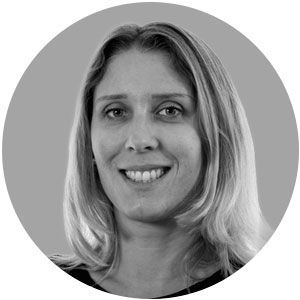
Sina-Elisabeth Ben Ali
Austrian Agency for Health and Food Safety (AGES), Austria
Sina-Elisabeth Ben Ali studied nutritional sciences at the University of Vienna. Since 2018, she has been working in the field of pesticide residues at AGES. She is involved in the assessment of plant protection products and active substances, as well as in the evaluation of MRL applications. Additionally, she has been participating in the Standing Committee on Pesticide Residues since 2021.
moreless
Paul Brian
Health and Safety Executive (HSE), United Kingdom
Paul Brian has been a residues specialist assessor in the UK Health and Safety Executive’s (HSE) Chemicals Regulation Division (CRD) since 2016. He has a particular focus on MRLs including GB MRL and import tolerance applications, MRL reviews and the adoption of Codex MRLs.
moreless
Monika Bross
BASF, Germany
Monika Bross is analytical chemist by training; she has been working at BASF Agricultural Center in Limburgerhof for more than 30 years. Within BASF she has been involved in the conduct of residue and metabolism studies, but also in dietary exposure assessments and the preparation of dossiers for international submissions. She is member of association expert teams dealing with residue related topics (including MRL setting) and the implementation of the EU Transparency Regulation.
moreless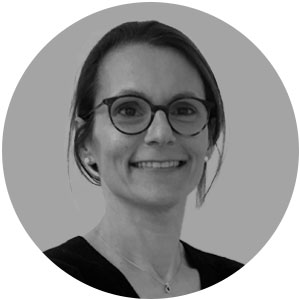
Isabelle Christian
Bayer, France
Isabelle Christian is a Dietary Safety and Metabolism Expert at Bayer. She holds a PhD in organic synthesis and joined Bayer Crop Science in 2002 as a research chemist. In 2008, she moved to development/consumer risk assessment. She is a member of the CLE RESG and chairs the EUPAF dietary safety subgroup.
moreless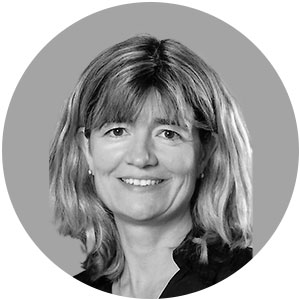
Janet Gamlin
Bayer, Germany
Janet Gamlin is a Dietary Safety and Metabolism Expert at Bayer. She holds a PhD in Physical Organic Chemistry and started at Bayer 25 years ago as a Sr. Research Scientist. Throughout her career, she has held various roles in the areas of Research and Development, Strategy and IT in Canada, the US and Germany. She is the chair of the CropLife Europe MetaPath RESG subgroup and a member of the OECD MetaPath User Group and CropLife Europe IUCLID subgroup.
moreless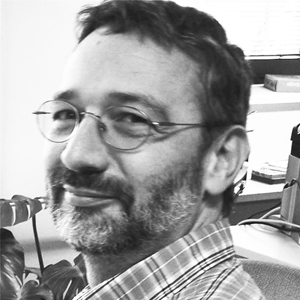
Karsten Hohgardt
Geman Federal Office of Consumer Protection and Food Safety (BVL), Germany
Karsten Hohgardt is the Head of the unit responsible for risk management in the field of toxicology, application security, methods of analysis, and residue behaviour at BVL. His main experience lies in MRL setting and residue behaviour.
moreless
Marc Kennedy
Fera Science, United Kingdom
Marc Kennedy joined the Central Science Laboratory (now Fera Science Ltd) in 2006 and has worked primarily on probabilistic models for pesticide intakes from dietary and occupational routes. He has a PhD in statistics and has worked at the universities of Nottingham and Sheffield and the National Institute of Statistical Sciences. Marc has also contributed to risk modelling software BREAM, BREAM2, and BROWSE for bystanders, residents, operators, and workers exposure and developed aggregate exposure models in the EU ACROPOLIS and EUROMIX projects.
moreless
Carsten Kneuer
German Federal Institute for Risk Assessment (BfR), Germany
Carsten Kneuer is a Toxicologist and the Head of the Unit “Toxicology of Active Substances and their Metabolites“ in the Pesticides Safety Department of the German Federal Institute for Risk Assessment. His group is evaluating the mammalian toxicology of pesticides within the EU assessment framework and is actively involved in various projects aimed at the advancement of our risk assessment practice.
moreless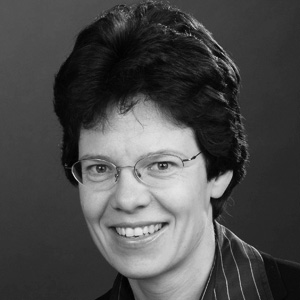
Britta Michalski
German Federal Institute for Risk Assessment (BfR), Germany
Britta Michalski is a Chemist by training and has been working in the German Federal Institute for Risk Assessment (BfR) since 2004. She is Head of the Unit Residues and Analytical Methods in the Department Pesticides Safety. Her group is involved in MRL setting, approval and authorisation procedures for pesticides and biocides. Britta is member of OECD’s Residue Chemistry Expert Group since more than 15 years and has recently co-chaired the Writing Group on the update of the Test Guideline on Storage Stability. She has been leading several EFSA projects in the area of pesticide residues and processing factors.
moreless
Alexandra Mienné
French Agency for Food, Environmental and Occupational Health and Safety (ANSES), France
Alexandra Mienné studied chemistry and health risk assessment and has been working at ANSES in the Regulated Products Assessment Department since 2012. She is involved in residue assessment since then, drafting registration reports, evaluation reports and European monographs. She has been involved in cumulative risk assessment of pesticides since 2015 and participates in the European working group on cumulative risk assessment.
moreless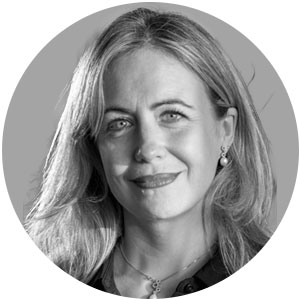
Silvia Nicolau Solano
European Commission, Belgium
Silvia I. Nicolau Solano is a Veterinarian specialised in food safety, holding a PhD in molecular genetics and biochemistry, along with two Masters of Science in biotechnology and meat science. Her professional career in the EU institutions spans over 14 years, where she has been dedicated to leverage the impact of science in policymaking. This includes food safety risk assessment as Scientific Officer at EFSA and research for health and food system policies as Policy Analyst at the JRC and as Scientific Officer at the European Research Council Executive Agency. Currently, she is involved in developing evidence-based policies in the area of residues of plant protection products as a Policy Officer at the Directorate of Health and Food Safety of the European Commission. Before joining the EU institutions, she worked at national level, leading the development of a knowledge transfer programme between academia and the food sector and implementing national official controls at primary production ensuring compliance with food safety standards.
moreless
Juan Parra Morte
European Food Safety Authority (EFSA), Italy
Juan Parra Morte has been Toxicologist in the Pesticide Peer Review Unit of EFSA since 2008. He has been actively involved in the assessment of pesticide active substances, their metabolites and impurities, including the EFSA PPR, the OECD Guidance on Residue Definition and EFSA's outsourced projects on the Genotoxicity Database and QSAR and Read-Across for the genotoxicity of metabolites. He is chairing the EFSA Working Group on NAMs QSARs.
moreless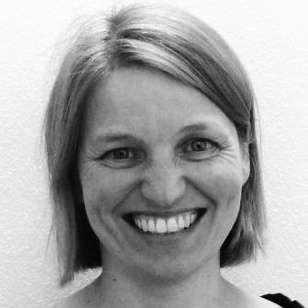
Hermine Reich
European Food Safety Authority (EFSA), Italy
Hermine Reich has been working at EFSA since 2006. As Lead Senior Scientific Officer in the Unit on Pesticide Residues she is responsible for developing and coordinating cross-cutting scientific topics related to EFSA’s risk assessment activities under Regulation (EC) No 396/2005, in particular in the field of dietary risk assessment, assessment of MRL applications, and development of risk assessment methodologies.
moreless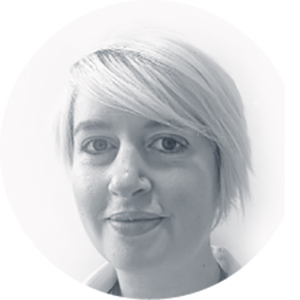
Claire Stephenson
ADAMA, United Kingdom
Claire L. Stephenson is a Senior Global Expert in residues and dietary exposure at ADAMA. Prior to this, she has worked both in consultancy and for the UK regulatory authority where she was the technical lead for MRLs. She has represented the UK as a technical expert at a range of EC and EFSA meetings and holds a PhD in biochemistry.
morelessKatoria Tatum-Gibbs
BASF, United States of America
Katoria Tatum-Gibbs is a Senior Agricultural Chemist at BASF in North Carolina. She has been an integral part of BASF’s Global Consumer Safety Team for the past 11 years. Her responsibilities include conducting and evaluating studies related to consumer exposure to plant protection products. Before joining BASF, Katoria worked at the United States Environmental Protection Agency within the Toxicity Assessment Division, where she investigated the impacts of various environmentally relevant compounds. She holds a Bachelor of Science degree in Chemistry and a Doctor of Philosophy degree in Environmental Toxicology from Texas Southern University.
moreless
Petra Veit
BASF, Germany
Petra Veit is a Biologist by training and Head of Consumer Safety Residues within BASF. She is responsible for the field and the analytical part of all kind of residue studies for MRL settings.
moreless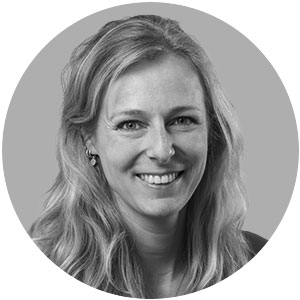
Anne Zwartsen
RIVM - National Institute for Public Health and the Environment, The Netherlands
Anne Zwartsen studied in vitro neurotoxicology and kinetics at Utrecht University. Since joining RIVM in 2021, she has been working as an European registered toxicologist in the field of chemical food safety. In addition to aiming to include computational models describing kinetics in (future) risk assessments, Anne is coordinating the EFSA-RIVM partnership on the implementation of EC agreed-upon retrospective and prospective cumulative risk assessment methodology in the Monte Carlo Risk Assessment (MCRA) platform, and trains and supports governmental regulatory users in performing CRA.
moreless
Jacob van Klaveren
RIVM - National Institute for Public Health and the Environment, The Netherlands
Jacob van Klaveren is coordinating the European funded project real-life mixtures granted under the Partnership of the Risk Assessment of Chemicals (PARC) and he is a member of the PARC Management Board responsible for innovation in regulatory risk assessment of chemicals in Europe. Since 2015, Jacob has been coordinating the EFSA-RIVM partnership on mixtures of pesticides. He coordinated the EU funded projects EuroMix and Acropolis in the period 2011-2020.
morelessWe have reserved a limited number of rooms for our participants at reduced rates at the hotel. These rooms can be booked up to 4 weeks prior to the start of the event. Please book early and directly through the hotel quoting „Akademie Fresenius“ as reference.
Participation Fee: € 1,995.00 plus VAT.
The registration fee includes the following benefits:
Representatives of an authority or a public university are therefore eligible for a reduced fee of € 895.00 plus VAT per person (please provide evidence). The reduced fee cannot be combined with other rebates.
Group Reductions
For joint bookings received from one company we grant a 15% discount from the third participant onwards.
Terms of Cancellation / Book without Risk
Written cancellations or transfers will be accepted free of charge up to four weeks prior to the start of the event. After this date and up to a week prior to the start of the event we will reimburse 50% of the registration fee. We cannot, unfortunately, provide refunds for later cancellations. However, in this case we will provide you with the event documentation after the event.
Please note that you can name a substitute free of charge at any time.

Claudia Werner
Programme and conceptual design
+49 231 75896-83
cwerner@akademie-fresenius.de

Claudia Werner
Programme and conceptual design
+49 231 75896-83
cwerner@akademie-fresenius.de

Claudia Werner
Programme and conceptual design
+49 231 75896-83
cwerner@akademie-fresenius.de

Jennifer Zerth
Organisation and participant management
+49 231 75896-79
jzerth@akademie-fresenius.de

Jennifer Zerth
Organisation and participant management
+49 231 75896-79
jzerth@akademie-fresenius.de
Present your Company at the Event.
You can personally present your products and services directly to your specified target group. We are happy to provide you with further information on our range of available options – from displaying company information at the reception counter to presenting your company with an exhibition stand.
We would be pleased to assist you personally:
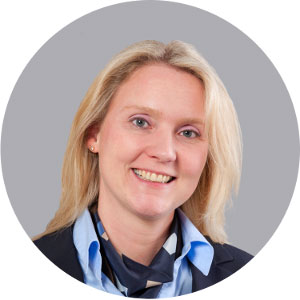
Monika Stratmann
Phone: +49 231 75896-48
info@akademie-fresenius.de
We offer journalists and editors a platform where they can get in touch with the experts.
If you are the editor of a specialist publication and interested in a press pass or media partnership, please contact us well in advance. We are happy to advise you.
Please contact us:
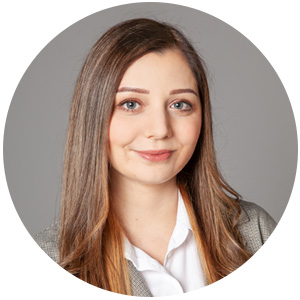
Katharina Geraridis
Phone: +49 231 75896-67
presse@akademie-fresenius.de
© Die Akademie Fresenius GmbH